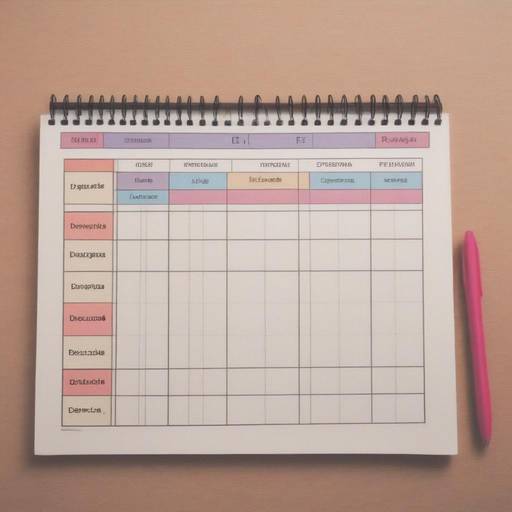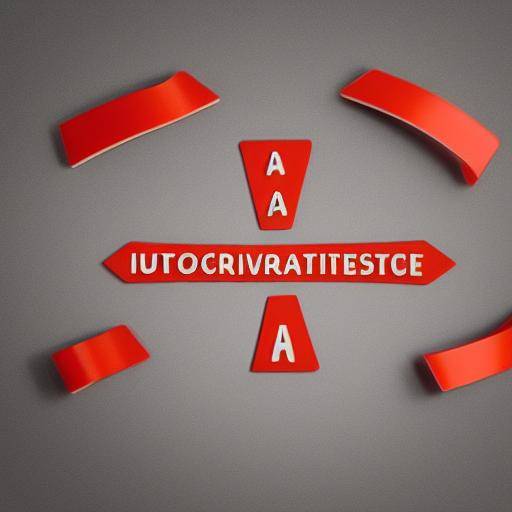
Introduction
Have you ever felt the excitement of setting a long-term goal, but then have you been overwhelmed by the magnitude of the challenge? This feeling is common, but the good news is that self-discipline can help you get where you want to be. In this article, we will explore the relationship between self-discipline and the achievement of long-term goals, as well as practical strategies to improve the capacity of self-discipline and planning. You will discover how self-discipline can be your ally to achieve your most ambitious dreams and goals.
History and Background
The idea of establishing long-term goals and discipline to achieve them has deep roots in the history of humanity. From ancient philosophies to contemporary practices, self-discipline has been recognized as a means of achieving success. Over the centuries, visionaries, leaders and thinkers have advocated the importance of setting significant goals and maintaining a constant discipline to achieve them.
Self-discipline has also evolved over time, shaped by advances in psychology, neuroscience and personal development. As the understanding of the human mind has increased, so has our understanding of how to effectively cultivate self-discipline.
Deep analysis
Self-discipline is not only crucial to achieving long-term goals, but also offers a wide range of benefits. From improving productivity and decision-making to strengthening resilience and self-confidence, the fruits of self-discipline are numerous and substantial.
However, everything is not simple. Self-discipline entails significant challenges. The fight against temptation, the long-term motivation and the overcoming of self-indulgence are common obstacles that we must face in seeking to meet our goals. Understanding the challenges we face in cultivating self-discipline is essential to effectively overcome them.
Comprehensive review
Strategic planning is an essential component of self-discipline. Establishing a clear and realistic road map to achieve our goals provides us with the necessary direction and approach to maintain discipline over time. When examining the planning process in detail, with examples of actual cases and current best practices, we can gain a deeper understanding of how we can apply self-discipline with the maximum impact.
In addition, it is important to consider different approaches and methods for the development of self-discipline and planning. In analyzing the various approaches, we can identify the strategies that best fit our individual needs, thus maximizing our long-term chances of success.
Comparative analysis
Compare and contrast the relationship between long-term goals, self-discipline and planning allows us to better understand how these concepts are intertwined. By examining their similarities, differences and ways of complementing each other, we can get valuable insights on how to effectively integrate these elements into our lives.
Practical Tips and Accessible Tips
To improve self-discipline and planning, practical strategies and actionable councils are crucial. Through detailed lists and step-by-step guides, you can learn how to implement concrete changes in your daily life to strengthen your self-discipline and maximize your planning capacity.
Industry Perspectives and Expert Reviews
Industries and experts agree on the importance of self-discipline and planning for long-term success. Gathering perspectives and opinions of experts, together with future trends and predictions, allows us to gain a more complete understanding of how these concepts are perceived and practiced in the real world.
Case Studies and Real Life Applications
Detailed case studies and real-life applications offer a practical insight into how self-discipline and planning can significantly impact the achievement of long-term goals. Analyzing results, lessons learned and examples of different industries or contexts can inspire you and inform you about how to apply these ideas to your own life.
Future Trends and Predictions
Emerging trends related to long-term goals, self-discipline and planning provide valuable information on the future of these concepts. By exploring predictions based on current data and expert opinions, we can get ideas about the challenges and opportunities that could arise in the future, preparing to adapt and thrive.
Conclusions
In short, self-discipline is a crucial factor in achieving long-term goals, and strategic planning is its indispensable ally. By integrating these concepts and strategies, you can enhance your chances of success and achieve your most ambitious goals. Through the commitment to self-discipline, the constant practice of planning and the search for continuous improvement, you can become the architect of your own destiny.
Frequently asked questions
1. Why is it important to establish long-term goals?
Setting long-term goals provides long-term direction, purpose and motivation. With clear goals, you can focus your efforts on meaningful and sustainable achievements.
2. How can I improve my self-discipline?
To improve self-discipline, it is essential to establish routines, eliminate distractions, practice self-reflection and reward yourself for progress. Consistency and patience are also key in this process.
3. What is the difference between self-discipline and willpower?
Self-discipline refers to the ability to maintain the direction and consistency towards a specific goal, while the strength of will refers to the ability to resist temptation and make short-term conscious decisions.
4. How can I create an effective plan to achieve my long-term goals?
An effective plan must be specific, realistic, measurable and limited in time. It should include intermediate milestones or steps, as well as a tracking system to assess progress.
5. How to overcome procrastination by working on long-term goals?
To overcome procrastination, it is useful to identify the underlying reasons for it, establish achievable intermediate goals, and use time management techniques such as Pomodoro technique.
6. How can self-discipline and planning impact my overall well-being?
Cultivating self-discipline and planning can improve your overall well-being by reducing stress, increasing the sense of achievement, and allowing you greater control over your life and goals.
In conclusion, self-discipline and strategic planning are the essential tools for achieving long-term significant goals. By understanding how these qualities are intertwined and assimilating practical strategies for their improvement, you can strengthen your ability to achieve success in any area of your life. Go ahead and pursue your goals with determination!






















































